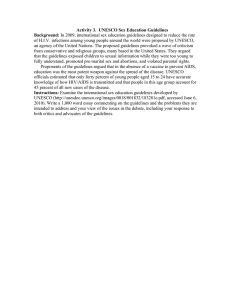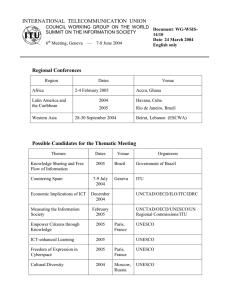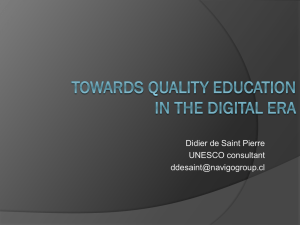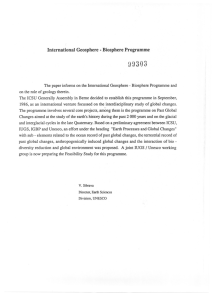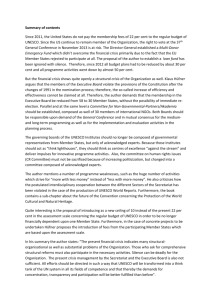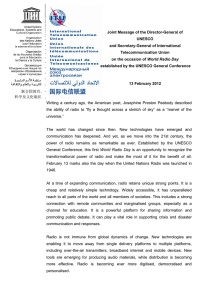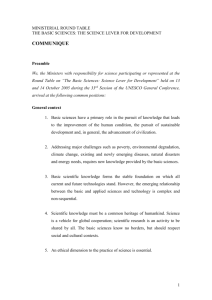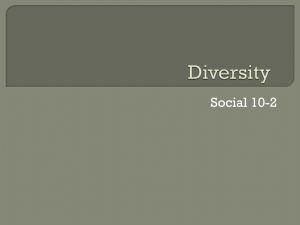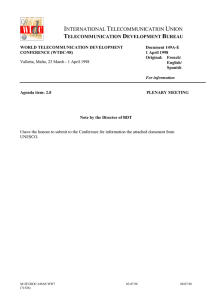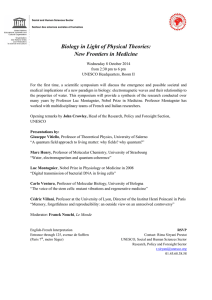Human Rights Council – 17th Session
advertisement
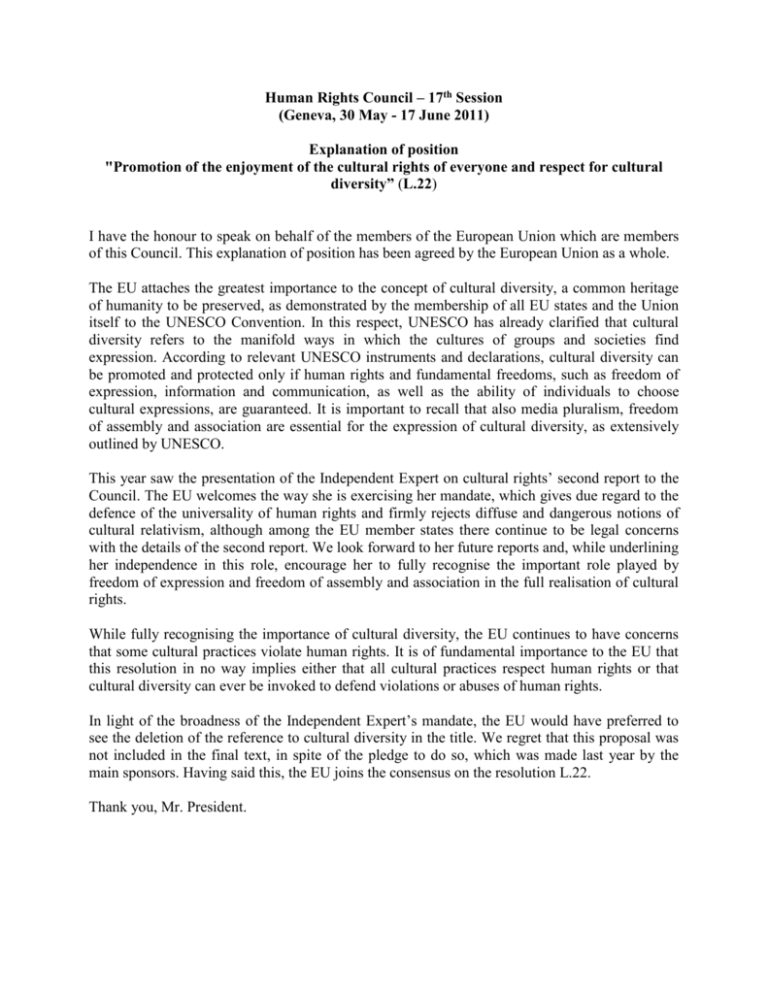
Human Rights Council – 17th Session (Geneva, 30 May - 17 June 2011) Explanation of position "Promotion of the enjoyment of the cultural rights of everyone and respect for cultural diversity” (L.22) I have the honour to speak on behalf of the members of the European Union which are members of this Council. This explanation of position has been agreed by the European Union as a whole. The EU attaches the greatest importance to the concept of cultural diversity, a common heritage of humanity to be preserved, as demonstrated by the membership of all EU states and the Union itself to the UNESCO Convention. In this respect, UNESCO has already clarified that cultural diversity refers to the manifold ways in which the cultures of groups and societies find expression. According to relevant UNESCO instruments and declarations, cultural diversity can be promoted and protected only if human rights and fundamental freedoms, such as freedom of expression, information and communication, as well as the ability of individuals to choose cultural expressions, are guaranteed. It is important to recall that also media pluralism, freedom of assembly and association are essential for the expression of cultural diversity, as extensively outlined by UNESCO. This year saw the presentation of the Independent Expert on cultural rights’ second report to the Council. The EU welcomes the way she is exercising her mandate, which gives due regard to the defence of the universality of human rights and firmly rejects diffuse and dangerous notions of cultural relativism, although among the EU member states there continue to be legal concerns with the details of the second report. We look forward to her future reports and, while underlining her independence in this role, encourage her to fully recognise the important role played by freedom of expression and freedom of assembly and association in the full realisation of cultural rights. While fully recognising the importance of cultural diversity, the EU continues to have concerns that some cultural practices violate human rights. It is of fundamental importance to the EU that this resolution in no way implies either that all cultural practices respect human rights or that cultural diversity can ever be invoked to defend violations or abuses of human rights. In light of the broadness of the Independent Expert’s mandate, the EU would have preferred to see the deletion of the reference to cultural diversity in the title. We regret that this proposal was not included in the final text, in spite of the pledge to do so, which was made last year by the main sponsors. Having said this, the EU joins the consensus on the resolution L.22. Thank you, Mr. President.
